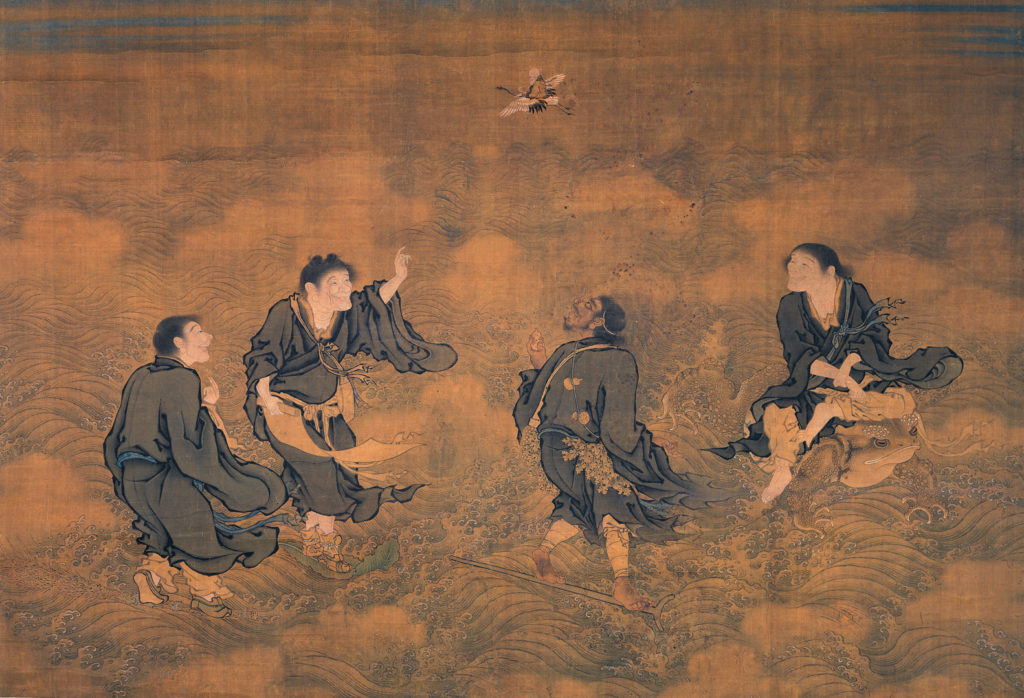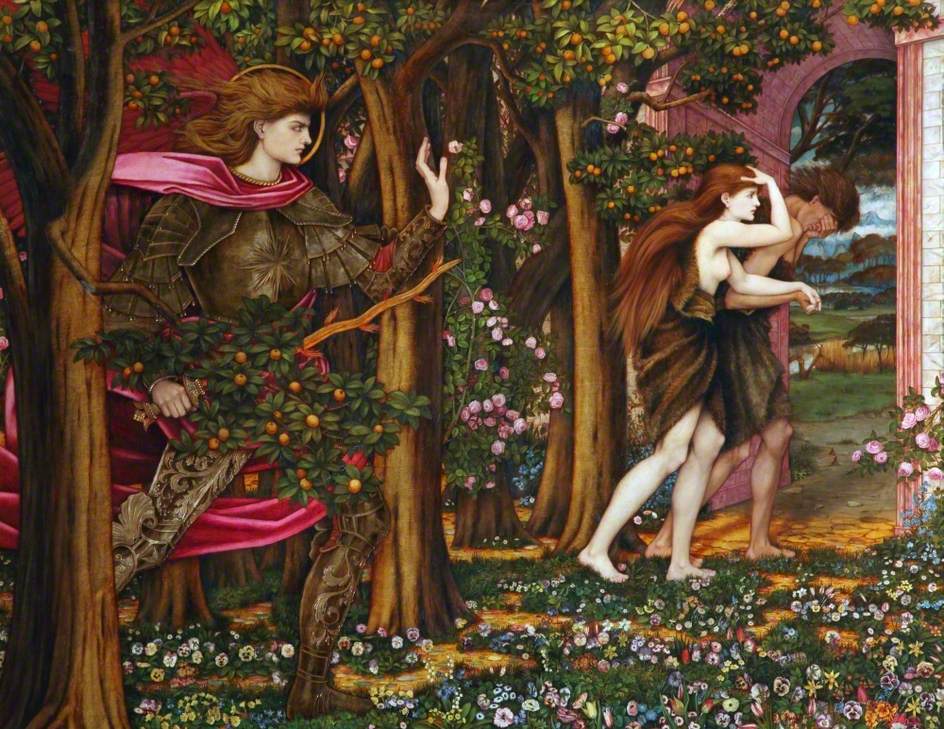A few years ago, I picked up a book, The Te of Piglet, at the dollar bookstore. As I read it, the author, Benjamin Hoff, explained that within Taoism, there is a teaching of the Great Separation; you will recognize some obvious similarities to the plan of salvation:
“Thousands of years ago, man lived in harmony with the rest of the natural world. Through what we would today call telepathy, he communicated with the animals, plants, and other forms of life—none of which he considered “beneath” himself, only different, with different jobs to perform. He worked side by side with earth angels and nature spirits, with whom he shared responsibility for taking care of the world.
It sounds like the Garden of Eden, where Adam names the animals, and he and Eve live in harmony with the animals and plants. The idea of “telepathy” is similar to what Spencer described in his near-death experience when his spirit left his body in the hospital, and he explains how he began to walk around:
I paused for a moment to let the flood of information settle into my mind. As I had passed through the desk, I realized that it had been made from three different trees. I saw each tree. I knew them from the moment their seed germinated until they were harvested, milled, and crafted into this desk. There was a living component in the wood. It was intelligent but had little will… I want to say much more about this phenomenon, of understanding physical things, but words fail me… I understood the several cattle whose hides covered the couch and their lives and their sacrifice. They had left all that information with their hides but the spirit of the cow was elsewhere, not in the leather, although still pleased and content with the benefits to mankind that its life and sacrifice had rendered. It was pleased that it was of benefit to the children of Adam. (Pontius, John (2012-11-13). Visions of Glory: One Man’s Astonishing Account of the Last Days (pp. 31-32). Cedar Fort, Inc.. Kindle Edition.)
Hoff continues in his book to explain the beginning of Taoism, before the Great Separation, which continues to be a description of the paradisiacal glory found in the Garden of Eden:
The earth’s atmosphere was very different from what it is now, with a great deal more vegetation-supporting moisture. A tremendous variety of vegetable, fruit, seed, and grain food was available. Because of such a diet, and a lack of unnatural strain, human life span was many times longer than what it is today. The killing of animals for food or “sport” was unthinkable. Man lived at peace with himself and the various life forms, whom he considered his teachers and friends.
But gradually at first, and then with increasing intensity, man’s Ego began to grow and assert itself. Finally, after it had caused many unpleasant incidents, the consensus was reached that man should go out into the world alone, to learn a necessary lesson. The connections were broken.
The next part sounds like the account of Adam and Eve, where they felt great sadness when God shut them out from the garden:
On his own, feeling alienated from the world he had been created from, cut off from the full extent of its abundance, man was no longer happy. He began to search for the happiness he had lost. When he found something that reminded him of it, he tried to possess it and accumulate more thereby introducing Stress into his life. But searching for lasting happiness and accumulating temporary substitutes for it brought him no satisfaction.
As he was no longer able to hear what the other forms of life were saying, he could only try to understand them through their actions, which he often misinterpreted. Because he was no longer cooperating with the earth angels and nature spirits for the good of all, but was attempting to manipulate the earth forces for his benefit alone, plants began to shrivel and die. With less vegetation to draw up and give off moisture, the planet’s atmosphere became drier, and deserts appeared. A relatively small number of plant species survived, which grew smaller and tougher with passing time. Eventually they lost the radiant colors and abundant fruit of their ancestors.
Man’s life span began to shorten accordingly, and diseases appeared and spread. Because of the decreasing variety of food available to him—and his growing insensitivity— man began to kill and eat his friends the animals. They soon learned to flee from his approach and became increasingly shy and suspicious of human motives and behavior. And so the separation grew. After several generations, few people had any idea of what life had once been like.
As man became more and more manipulative of and violent toward the earth, and as his social and spiritual world narrowed to that of the human race alone, he became more and more manipulative of and violent toward his own kind. Men began to kill and enslave each other, creating armies and empires, forcing those who looked, talked, thought, and acted differently from them to submit to what they thought was best.
Life became so miserable for the human race that, around two to three thousand years ago, perfected spirits began to be born on earth in human form, to teach the truths that had largely been forgotten. But by then humanity had grown so divided, and so insensitive to the universal laws operating in the natural world, that those truths were only partially understood.
As time passed, the teachings of the perfected spirits were changed, for what one might call political reasons, by the all-too-human organizations that inherited them. Those who came into prominence within the organizations wanted power over others. They downplayed the importance of nonhuman life forms and eliminated from the teachings statements claiming that those forms had souls, wisdom, and divine presence and that the heaven they were in touch with was a state of Unity with the Divine that could be attained by anyone who put aside his ego and followed the universal laws. The power-hungry wanted their followers to believe that heaven was a place to which some people—and only people—went after death, a place that could be reached by those who had the approval of their organizations. So not even the perfected spirits were able to restore the wholeness of truth, because of interference by the human ego.
Down through the centuries, accounts of the Great Separation, and of the Golden Age that existed before it, have been passed on by the sensitive and wise. Today in the industrial West, they are classified as mere legends and myths—fantasies believed in by the credulous and unsophisticated, stories based only on imagination and emotion. Despite the fact that quite a few people have seen and communicated with earth angels and nature spirits, and that more than one spiritual community has grown luscious fruits and vegetables by cooperating with them and following their instructions, descriptions of these beings are generally dismissed as “fairy tales.” And, although colored and simplified accounts of the Great Separation can be found in the holy books of the world’s religions, it is doubtful that many followers of those religions strongly believe in them. (The Te of Piglet, Benjamin Hoff)

Four Immortals Saluting Longevity, hanging scroll, Color on silk, 98.3 x 143.8 cm. Located at the National Palace Museum, Taibei. The immortals are from left to right: Shide standing on a broom, Hanshan standing on a banana leaf, Iron-Crutch Li standing on a crutch, and Liu Haichan riding a ‘Chan Chu’ three footed toad. The being riding the crane is the Longevity Star God.

